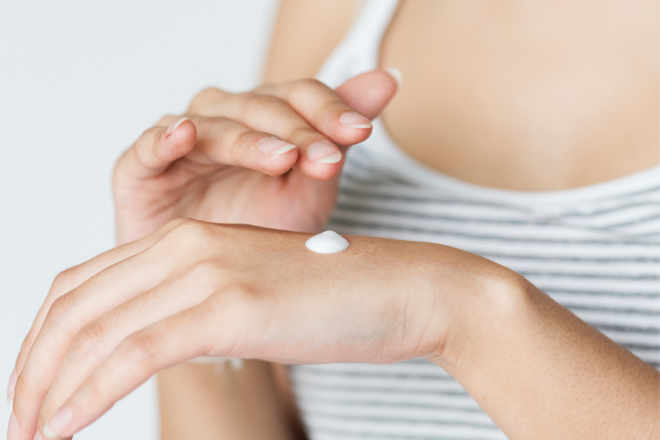Science-backed sleep and stress habits that influence skin health
Sleep and stress management are central to visible skin health because they shape inflammation, hormone balance, and tissue repair. This article summarizes science-backed habits—from consistent sleep schedules and mindfulness practices to hydration and targeted nutrition—that support skincare and overall wellness. Read concise, practical strategies that align with recovery, workouts, posture, and daily routines to help maintain skin resilience.

Science-backed sleep and stress habits that influence skin health
Quality sleep and controlled stress responses both support skin repair, barrier function, and appearance by regulating inflammatory and hormonal pathways. Over time, chronic sleep disruption and unmanaged stress can impair collagen synthesis, raise cortisol, and slow cellular recovery. This article examines practical, research-aligned habits that connect sleep, stress, and skincare with broader wellness practices such as nutrition, workouts, hydration, and mobility.
This article is for informational purposes only and should not be considered medical advice. Please consult a qualified healthcare professional for personalized guidance and treatment.
How does sleep affect skincare and recovery?
Sleep is when the body prioritizes tissue repair and protein synthesis, processes that directly affect skin integrity and appearance. During deep sleep phases, growth hormone and other anabolic signals increase, supporting collagen production and cellular turnover. Short or fragmented sleep elevates inflammatory markers and cortisol, which can worsen redness and impede recovery after workouts or cosmetic procedures. Establishing consistent sleep timing, limiting blue light exposure before bed, and creating a cool, dark sleeping environment support both sleep architecture and the skin’s nightly regenerative cycle.
How do stress and mindfulness impact skin?
Psychological stress triggers neuroendocrine responses that increase cortisol and inflammatory cytokines, contributing to acne, eczema flares, and slower wound healing. Mindfulness practices—such as brief daily meditation, focused breathing, or progressive muscle relaxation—can reduce perceived stress and lower physiological arousal. These techniques complement topical skincare by reducing systemic drivers of inflammation. Incorporating short mindfulness sessions into recovery routines can support clearer skin while improving sleep onset and emotional resilience.
What role do hydration and circulation play?
Adequate hydration supports skin turgor and the delivery of nutrients to epidermal cells, while effective circulation helps clear metabolic byproducts and promote recovery. Drinking water alone won’t change skin dramatically, but consistent hydration paired with cardiovascular activity enhances microcirculation and can improve skin tone over time. Gentle face massage or lymphatic techniques used alongside posture-aware habits can further stimulate circulation, aiding in the transport of oxygen and antioxidants to the skin’s surface.
How do nutrition, antioxidants, and peptides help?
A balanced nutrition strategy rich in antioxidants supports skin by neutralizing oxidative damage and supporting cellular repair. Foods high in vitamins C and E, polyphenols, and omega-3 fatty acids can complement topical antioxidant ingredients. Dietary protein provides amino acids necessary for collagen and peptide production; specific peptides applied topically or used in clinical settings may signal repair pathways, though evidence varies by compound and formulation. Pairing whole-food nutrition with targeted skincare ingredients supports structural integrity and overall wellness.
Can workouts, strength, and flexibility influence skin health?
Regular workouts boost circulation and enhance metabolic health, which indirectly benefits the skin. Strength training and mobility-focused sessions support muscle tone and posture, which can influence how skin rests and ages across joints and the neck. Post-exercise recovery—cooling down, cleansing sweat from the skin, and adequate sleep—reduces prolonged inflammatory exposure. Flexibility routines and mobility work can also reduce mechanical stress on skin and underlying tissues, contributing to more even tone and reduced irritation.
Why are posture and mobility important for skin and recovery?
Posture influences local circulation, lymphatic drainage, and the mechanical forces applied to skin. Poor posture can contribute to tension in the neck and chest, affecting sleep comfort and potentially causing repetitive friction or compression that impacts skin quality. Mobility work improves range of motion and reduces chronic muscular tension, supporting circulation and recovery after workouts. Combining posture awareness with hydration, adequate sleep, and a balanced routine helps maintain skin resilience and functional movement.
Conclusion
Integrating consistent sleep habits, stress-reduction practices, balanced nutrition, and movement routines creates a supportive foundation for skin health. Hydration, circulation, and targeted nutrient intake work alongside topical skincare and recovery strategies to preserve barrier function and collagen synthesis. Small, sustainable adjustments in sleep timing, mindfulness, workouts, and posture can cumulatively influence appearance and comfort without relying solely on cosmetic interventions.






